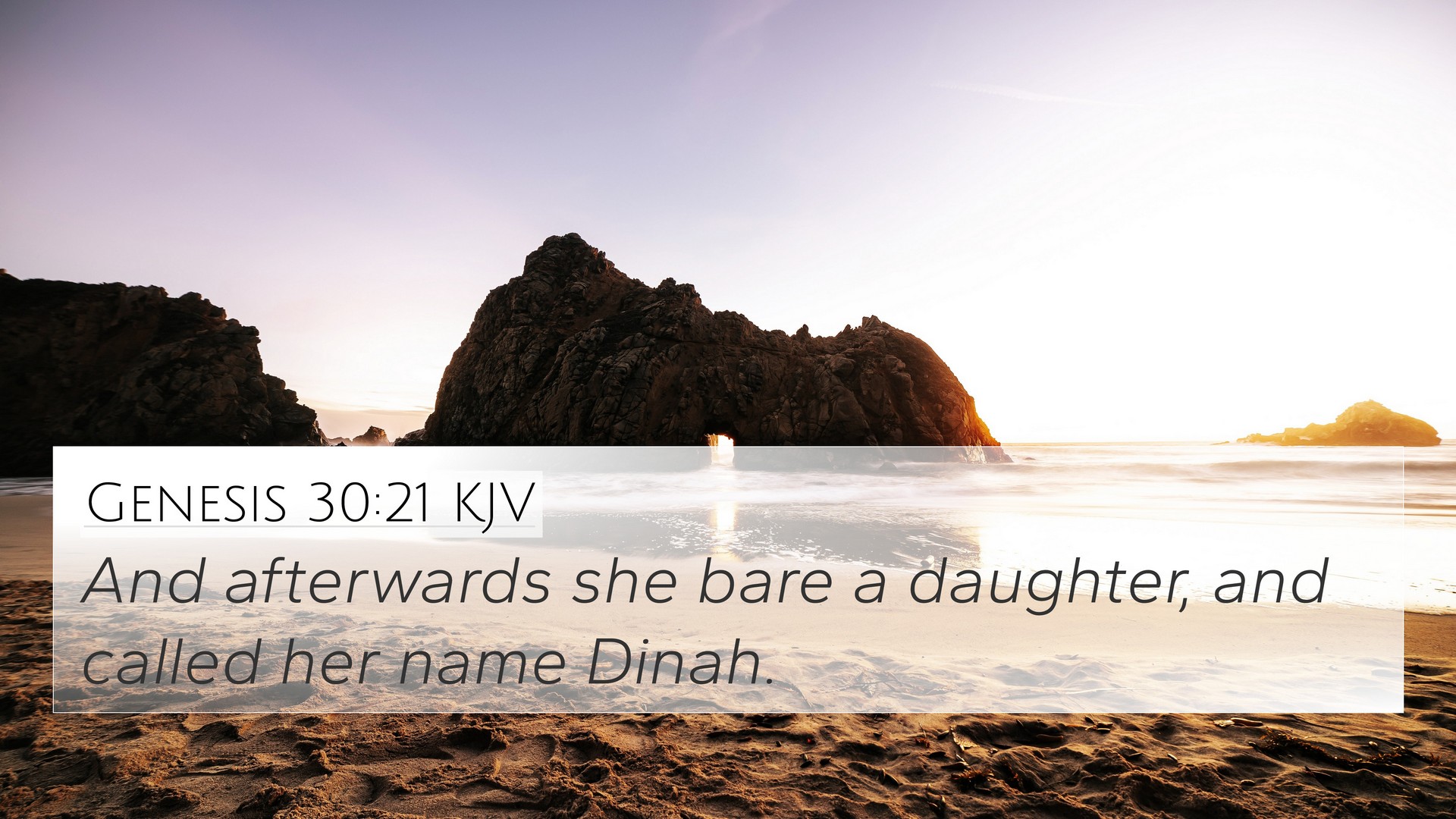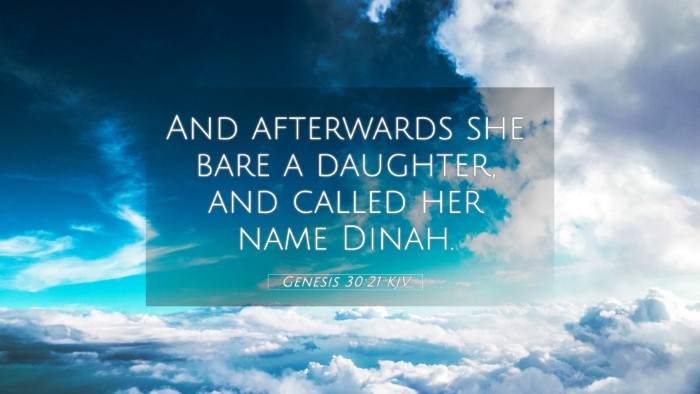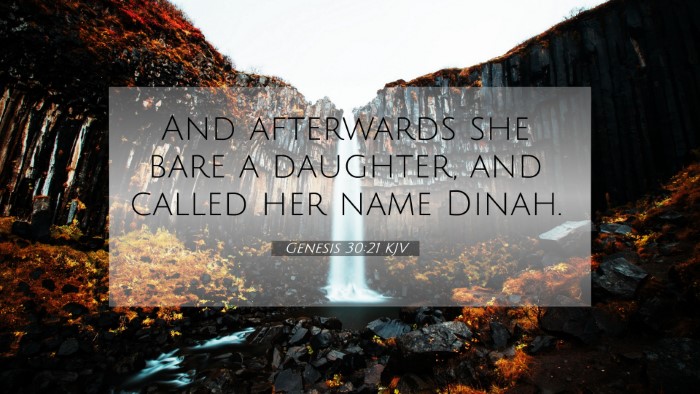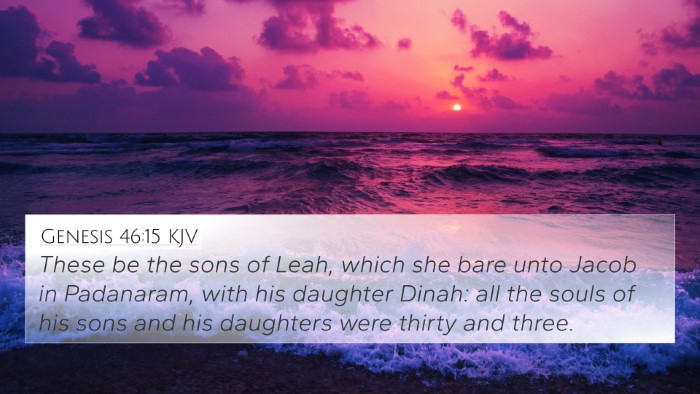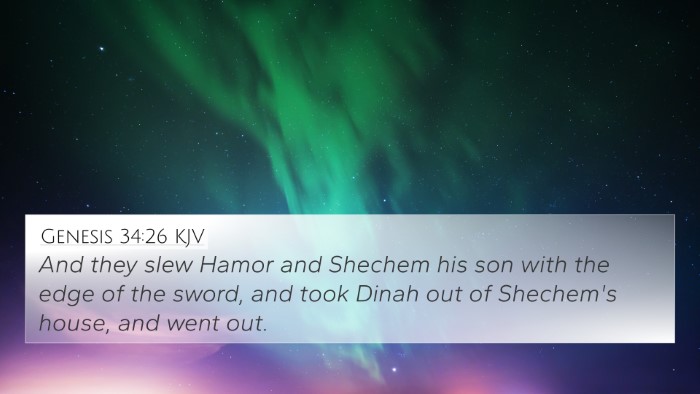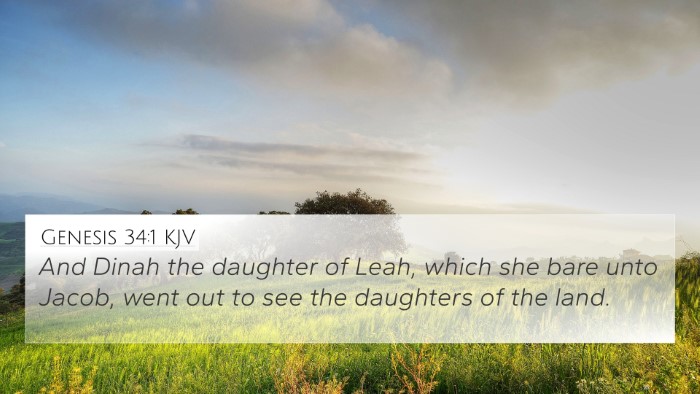Understanding Genesis 30:21
Genesis 30:21 states:
“And afterward she bare a daughter, and called her name Dinah.”
This verse depicts the birth of Dinah, the daughter of Leah, and is crucial in the narrative of Jacob's family dynamics. This verse can hold various interpretations and significant insights as we explore the larger context of the chapter and the relationship it has with other scriptures.
Meaning and Interpretation
The meaning of Genesis 30:21 can be understood through various lenses provided by public domain commentaries.
-
Matthew Henry:
Henry notes the importance of Dinah’s birth as it signifies Leah’s continued struggle for love and acknowledgment from Jacob. Unlike her sons, Dinah's introduction as a daughter might indicate a shift in focus within the family dynamics, emphasizing the feminine role within a patriarchal society.
-
Albert Barnes:
Barnes highlights that Dinah’s name means “judgment” or “vindication,” reflecting Leah’s desire for recognition. His analysis shows how this connection to judgment can be seen in the events that unfold later in her life.
-
Adam Clarke:
Clarke provides a historical context surrounding Dinah's significance, emphasizing the hefty weight her life bears in the lineage of Israel. He also elaborates on her interaction with Shechem and how it impacts the narrative, further deepening her character's depiction.
Connections to Other Bible Verses
Genesis 30:21 can be understood better through various cross-references in the Bible. Here are several verses that relate to this scripture and provide deeper thematic connections:
- Genesis 29:35: The birth order of Leah's children establishes the competition between her and Rachel.
- Genesis 34:1: This verse follows Dinah’s story, detailing her encounter with Shechem, revealing the complexities of her life and the impacts of her lineage.
- Genesis 12:3: The promise to Abraham regarding his descendants sets a backdrop for understanding the importance of Jacob’s family.
- Exodus 1:1-5: Don’t forget the entire genealogy that roots down from Jacob's family, emphasizing the significance of each tribe.
- Matthew 1:2-3: The genealogy of Jesus highlights Judah, one of Leah’s sons, demonstrating the ongoing significance of Leah’s family line.
- Genesis 37:35: The repercussions of Jacob’s family dynamics, further on, unfold tragic aspects, showing the long-lasting impacts of relationships formed in Genesis 30.
- Genesis 48:5: Jacob’s blessings upon his sons and grandsons signify the prophetic nature tied to Leah's descendants.
Thematic Connections
The themes woven throughout Genesis 30:21 and its cross-references bring forth crucial lessons about family dynamics, identity, and God's overarching plan:
- Family Dynamics: The rivalry and tension between Leah and Rachel highlight real human emotions and societal roles.
- Identity and Recognition: Leah's continuous struggle for Jacob's affection mirrors many familial relationships today.
- God’s Sovereignty: The narrative underscores how God uses complex situations to fulfill His purposes, as seen through the lineage of His chosen people.
Cross-Referencing Biblical Texts
Responsive analysis between Scriptures can enhance our understanding, linking Bible verses such as:
- Psalm 127:3: Highlights children as a blessing, which indirectly relates to Leah's perspective on her offspring.
- Isaiah 54:1: A message of hope for the forsaken mirroring Leah’s early feelings of rejection.
- Galatians 4:26: Talks about the Jerusalem above, relating to the broader story of God's people and their heritage.
Insights from Cross-Referencing
When performing a cross-reference analysis, consider using tools such as concordances and cross-reference guides. These tools not only help identify thematic Bible verse connections but allow for an enriched Bible study experience:
- Using a Bible Concordance: Helps locate where similar themes or words appear throughout Scripture.
- A Bible Cross-Reference Guide: Assists in tracing connections between verses that inform and illuminate biblical teachings.
- Methods for Cross-Referencing: Research connections between Old and New Testament verses to find parallels and contrasts in themes.
Conclusion
Genesis 30:21, while a brief statement of familial development, opens up profound insights regarding identity, relationships, and God's purpose in our lives. The analysis through various commentaries provides layers of meaning and draws insightful parallels across the scriptures. Understanding the connections between Bible verses enhances our interpretation and encourages deeper scriptural engagement.
